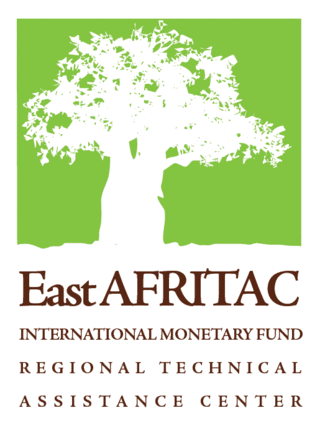Posted by Kubai Khasiani[1]
The IMF’s Regional Technical Assistance Center for East Africa (AFRITAC East, AFE) organized a regional PFM workshop on “Strengthening Budgetary Institutions” in Dar es Salaam, Tanzania from 22-25 February 2016. The event was attended by 26 government officials from Eritrea, Ethiopia, Kenya, Malawi, and Tanzania. The workshop reviewed the performance of AFE countries in introducing Medium-Term Expenditure Frameworks (MTEFs) and program-based budgets (PBB), and the challenges that remain. The discussions were facilitated by Richard Allen, Florence Kuteesa and Phyllis Makau (FAD experts).
The workshop exposed participants to experiences from other regions and good international practices in budgeting. Assisted by the experts and using a self-evaluation tool designed by FAD and adapted for the workshop, participants assessed the factors contributing to the generally low credibility of budgets in AFE countries. These factors include poor macro-fiscal projections, weak cash management, uncontrolled expenditure arrears, and recurring financial integrity issues.
The results of the self-evaluation showed that the budgetary institutions in the region were generally moderate and required strengthening. MTEFs were first introduced in some AFE countries more than 20 years ago, but the initially promising results have in general not been sustained. Without improvements in basic PFM prerequisites, the further development of MTEFs and PBB will continue to be challenging. In particular, participants noted the low levels of common understanding of the reform benefits and lack of country ownership of the reforms especially at political level. Nascent institutions[2] require nurturing before fully embracing these advanced reforms.
Participants concluded that regional MTEF and PBB reform objectives are not fully reconciled with the structure, processes, laws, regulations, procedures, practices and capacity in place, hence failing to reap the benefits of these reforms. They also noted that the prevailing public service management culture does not encourage the delegation of responsibility for managing programs and budgets at the ministry and agency level, nor the development of improved decision making within government on the prioritization and allocation of budgetary resources. The incentives for civil servants to improve performance are quite weak. In addition, improved macro-fiscal forecasting is hampered by weak national statistical databases.
The workshop further concluded that existing reforms of MTEF and PBB focus too much on the formal technicalities (e.g., developing new reporting templates and elaborate systems of performance indicators) without much consideration of how these techniques and data should be used to improve decision making on the prioritization and allocation of resources. Ministries and agencies often lack the capacities to analyze performance information, and the new reporting formats and performance data are not fully integrated into existing platforms (IFMIS) for managing financial information. Finally, the Cabinet debate is not informed by the need for improved performance, while Parliamentary interest in holding the executive accountable for performance is limited.
The participants explored possible measures to address the existing challenges and proposed regional and country priorities for TA intervention. Achieving an improved impact of TA may require some reorientation of PFM reform strategy in the countries concerned. Key measures include: (i) strengthening the prerequisites for developing MTEFs and PBB in areas such as revenue forecasting, internal control (including commitments), managing arrears, cash forecasting and cash management, and improved fiscal transparency; and (ii) increased emphasis on the monitoring, evaluation and audit of performance information.
Above all, countries should invest in changing the culture and “mindset” of public officials so as to support improvements in the efficiency and effectiveness with which public services are delivered. Key stakeholders should be sensitized to encourage a common understanding and ownership of the MTEF and PBB reforms, and to reduce their resistance to these reforms. Such a program of change management is not a simple matter and will require leadership and commitment over a sustained period. Borrowing from experiences in more advanced countries, and taking account of the magnitude of the reforms, participants proposed therefore that a phased approach to adopting MTEFs and PBB was more sustainable.
Though the priority areas identified for technical assistance (TA) for the region were found to be generally consistent with the AFE’s Phase IV program document, the interactions at the workshop assisted in aligning them to the underlying challenges. The discussions are expected to further motivate the beneficiaries in demanding more relevant TA. In the medium term, AFE will focus on assisting the countries to strengthen the identified budgetary institutions.
[1] Regional PFM Advisor, AFRITAC East.
[2] Budgetary institutions comprise the laws, procedures, rules, principles, practices, and processes, whether formal or informal, that determine and regulate the behavior of public officials and organizations in the budget process.
Note: The posts on the IMF PFM Blog should not be reported as representing the views of the IMF. The views expressed are those of the authors and do not necessarily represent those of the IMF or IMF policy.








